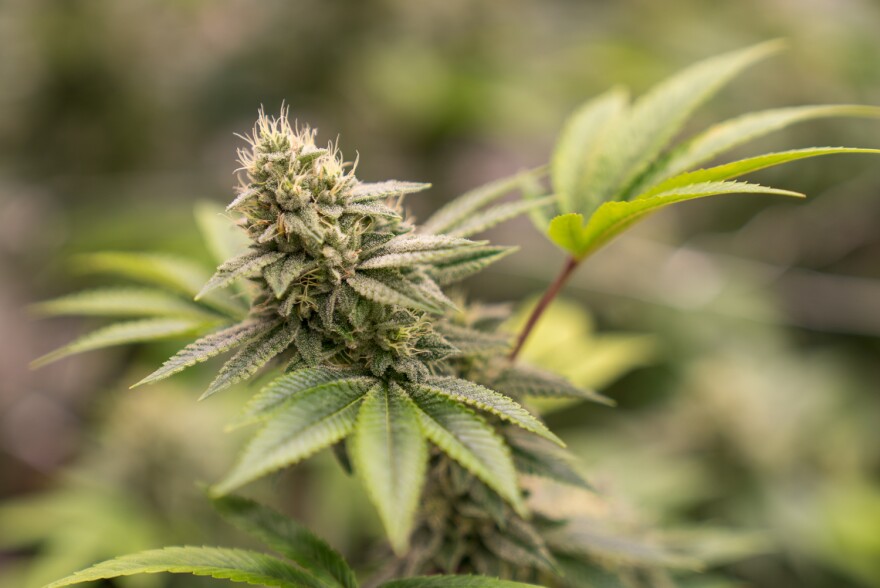BELLEVILLE — Officials here don’t have a proposal from a company that wants to locate a recreational marijuana dispensary in the city, but aldermen have cleared the path for the zoning changes necessary to allow the sales.
If a dispensary opens in the city, it must be in either a commercial or industry zoning district, according to changes unanimously approved by the City Councilon Thursday.
“If somebody wants to come forward now, we’re ready to go,” Mayor Mark Eckert said after council voted.
Recreational cannabis sales will become legal on Jan. 1. The state law signed by Gov. J.B. Pritzker allows four dispensaries in the Metro East. So far, the only one approvedin the Metro East is the Collinsville site of Illinois Supply & Provisions,which previously was known as HCI Alternatives. It’s at 1014 Eastport Plaza Drive.
Eckert said he wouldn’t mind seeing a dispensary in the city because of the potential taxes the site could produce. Earlier this year, the City Council approved a 3% municipal sales tax on marijuana products sold in the city.
“I mean it’s going to be, obviously, some pretty considerable amount of tax,” he said.
And he said if other Metro East cities are going to allow a dispensary, he thinks Belleville should keep its options open.
“The law is they can use it in their homes in Belleville, so why wouldn’t we want to get some of the benefit of some of the potential sales?”
“There’s been some calls of interest, so I would imagine now that this is out there; I would anticipate after the first of the year we’re going to have some people legitimately get serious — maybe,” Eckert said.
Pot regulations
If a business that grows or processes marijuana would want to locate in Belleville, it would have to open in an industry zoning district.
Eckert said a dispensary selling recreational weed products will be “very controlled.”
Illinois residents will be allowed to possess 30 grams of cannabis flower, no more than 500 milligrams of THC contained in a cannabis-infused product and 5 grams of cannabis concentrate.
Non-residents will be allowed to possess half of the amounts that residents can have.
Marijuana debate
While the vote to amend the zoning rules for a marijuana dispensary sailed through the Belleville City Council without any opposition or comments from the public, residents in O’Fallon and Highland have had heated discussions over the issue, and those towns will hold advisory referendums on the topic early next year.
One Highland resident told city leaders he didn’t want the town to be a “pothead community,” while another resident urged the council to allow residents access to legal cannabis, saying it was up to the marketplace to decide whether a marijuana dispensary was “the right image” for Highland.
The O’Fallon City Council initially voted to ban the sale of cannabis, declaring it a public nuisance. But it subsequently voted 8-5 to allow the referendum.
The company that owns the marijuana dispensary in Collinsville has said it hopes to open a location in Fairview Heights. Meanwhile, the City Council has voted 7-3 on legislation that would allow a marijuana dispensary in the city.
Collinsville officials have approved a 3% sales tax on pot sales in the city, and officials have estimated the tax could provide the city between $1 million and $1.3 million a year in sales tax revenue.
Mike Koziatek is a reporter for the Belleville News-Democrat, a news partner of St. Louis Public Radio.
Send questions about comments about this article to feedback@stlpublicradio.org.





